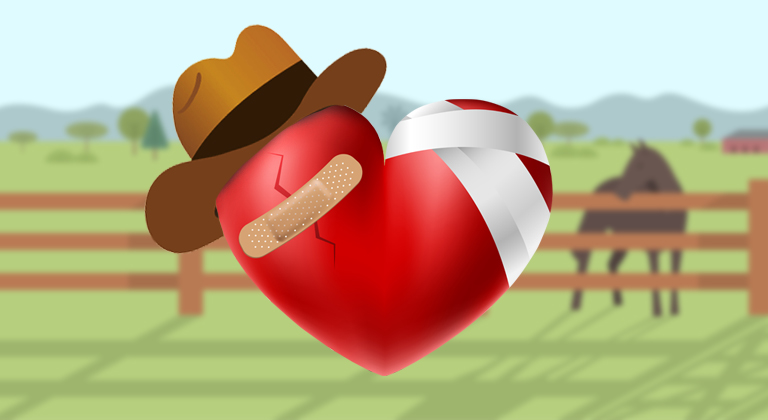Writing Therapy connects you with readers
By: Ginger | Posted on August 4, 2023
Throughout history, writers have found solace in expressing their pain and trauma through their work, as a type of writing therapy. However, the benefit isn’t just for the author. Writing about our deepest wounds can resonate deeply with others, validating their silent suffering and forging powerful connections through our shared struggles. That’s why finding the courage to write about our pain isn’t just about getting something off our chests. As Ginger explains in today’s blog, it’s also about adding a sense of honesty and authenticity to our work that will build stronger bonds with readers and be appreciated more than you might think. Expressionist painter Edvard Munch created the “Mona Lisa of modern art” when he painted The Scream in 1893. A truly haunting painting that depicted his panic attack after losing track of his friends during a walk, it served as a keyhole into the turmoil of trauma, depression,… Read More >
Designing books from the outside in
By: Ginger | Posted on July 28, 2023
One of the greatest pieces of writing advice authors rarely follow is: “Write the blurb before the book.” Why should we do that? Because blurbs condense the concept of a novel into a few short paragraphs – and focusing on the killer hook is what can deliver a book that leaves a lasting impression. Unfortunately, it’s not as easy as it sounds which is why the advice is rarely followed, but this week Ginger is diving into the subject to help explain the concept and why it’s important that even if you don’t follow it to the letter, you can still benefit from the idea. Blurbs sell books. That little three-or-four paragraph “details” section on your Amazon Product Page is ultimately one of the most influential factors in whether or not a potential reader clicks Buy Now when they land on your book page. Your blurb can make all the… Read More >
What can writers learn from Cormac McCarthy?
By: Ginger | Posted on July 14, 2023
When Cormac McCarthy died last month, the world lost a literary icon. Although only leaving behind a dozen novels, McCarthy made his mark on the world of literature, and authors everywhere can learn a lot from his work. Today, Ginger takes a dive into who McCarthy was and why his books have such a strong impact on those that read them. By dissecting what it was that McCarthy did so well, writers can learn lessons that could potentially be applied to their own writing. Both as a way to make them stronger, and as a way to increase the chance that their books are remembered long after they’re gone by creating a legacy of their own. This June, the world lost American author Cormac McCarthy. An American literary icon, McCarthy was 89 years old and left behind a legacy of 12 books that altered the shape of American literature forever…. Read More >
What can writers learn from Brandon Sanderson?
By: Ginger | Posted on June 23, 2023
Brandon Sanderson was a big deal before he blew everyone away with the largest Kickstarter fundraiser ever. He’s been successfully writing fantasy and science fiction novels for the last 20 years, building up a loyal fanbase that, in hindsight, largely explains the successful of his Kickstarter project. But what is it that makes him so popular amongst readers and, more importantly, is there something we can learn from him that can be applied to our own writing or careers? Those are exactly the questions that Ginger is attempting to answer in today’s blog, as he examines who Sanderson is and what elements of his writing lead to his incredible popularity. Recently we published an episode of the Fully Booked podcast in which we spoke to Oriana Leckert, Head of Publishing for Kickstarter. As she outlined what opportunities Kickstarter offers self-published and independent authors, we repeatedly referenced the most famous Kickstarter success… Read More >
Should Authors Embrace the AI Revolution?
By: Ginger | Posted on February 17, 2023
ChatGPT exploded onto the scene a few months ago, and I honestly don’t feel like I’m overstating things when I say that it literally changed almost everything overnight. There’s a reason why it set a record for the fastest user growth ever, hitting 100 million active users within 2 months of launch. People are finding new uses for it almost daily, and one of the most interesting (to us) is in how it can help authors. Sure, there are negative stories about how students are using it to write essays or pass their tests, or the sky is falling type articles warning how everyone is about to lose their jobs to AI, but we can either fear change, or embrace it. The reality is, this is just the tip of the iceberg. The cat is out of the bag on this, and it’s NOT going back in. AI is here… Read More >
Discover a Fresh Perspective with the POV Challenge
By: Ginger | Posted on February 10, 2023
This week’s podcast with Courtney Brandt explores the intricacies of writing in first and third person perspectives, which is an excellent reference to listen to before (or after) reading this blog. In many cases, whether due to genre norms or story requirements, one perspective is more suited than another for a particular story, but there are also plenty of occasions where either POV could work (although the results would likely be two very different versions of the same tale.) Yet despite this, many authors favor one POV over another, even when the alternative may be a better fit. Both perspectives have their unique strengths, which is why experimenting with them can be an incredibly valuable exercise. By switching things up, authors can gain a fresh perspective on their plot and characters, which in turn may result in a their ability to write a much stronger and engaging story. But don’t… Read More >
The Dangers of Mixing Politics and Writing
By: Ginger | Posted on January 20, 2023
If you were to judge solely by the backlash so often seen erupting in social media these days, whenever an author gets too political in their writings, you might think that voicing those opinions was a new phenomenon. But in fact, writers have always used their work as a soapbox for their political leanings, we’re simply paying more attention to it now, with everyday readers finally having a place to sound off from when they agree or disagree with what they’ve read. That’s not to say that writers shouldn’t speak their mind or fill their work with messages about how they think the world should work, but it does mean that it should be done with care. There are many examples of big name authors that have alienated their fans and paid the price, but there are also those that have done it in a way that is embraced and… Read More >
What can Jack Carr teach us about writing?
By: Ginger | Posted on December 2, 2022
Despite following in the footsteps of Lee Child, there is still much to learn from the meteoric rise in popularity of former Navy Seal turned author Jack Carr. Carr is a relative newcomer to writing, with only about five books to his name so far, but he’s been a chart topper since his debut, and his first book has already been turned into a streaming series on Prime. That’s why it makes sense for Ginger to examine what it is that has led to Carr’s quick success and what it can teach us that can be applied to our own writing, in this latest installment of his informal writing lessons series. Right now, there are two deadly badasses on my Amazon Prime menu screen – Jack Reacher and James Reece. The former is played by Alan Ritchson, who takes the role of the eponymous star of Lee Child’s Jack Reacher… Read More >
What Can George R. R. Martin Teach Us About Writing?
By: Ginger | Posted on November 4, 2022
Once again, Ginger is looking at another great writer for inspiration and lessons, boiling down what makes them so popular into little tidbits we can use and apply to our own writing. This time the author is George R. R. Martin, best known for his ongoing series of books and the hit HBO show based on them, Game of Thrones. Even though his world is made up of countless characters and each novel is hundreds of pages long, there are key elements that Martin sticks to in his books. His enormous and ever-growing fanbase is proof that his formula is popular among readers, which is why it’s worth digging into what it is he does so that we can determine if his techniques could work for us, as well. But be warned, for anyone that hasn’t yet read the books or watched the show, there are some minor spoilers ahead…. Read More >
Use Tropes to Your Advantage
By: Ginger | Posted on October 28, 2022
What’s a James Bond movie without 007 using his high-tech gadgets? What’s the point of a western unless there’s a quick-draw showdown beneath the noonday sun? One highly overlooked attribute of successful books, shows, and movies is a reliance on tried-and-tested tropes that audiences like to eat up time after time. As Ginger points out below, learning and using the tropes of your genre can work in your favor by scoring an instant connection to your ideal readers. The word ‘trope’ is used a lot when people dissect popular culture, and its generally not in a flattering way. The dictionary defines a trope as “a figurative or metaphorical use of a word or expression” but fans of science fiction movies, horror films, or any other popular genre will more generally think of them as repeated scenarios that have become part of the furniture for their favorite books and TV shows…. Read More >

















